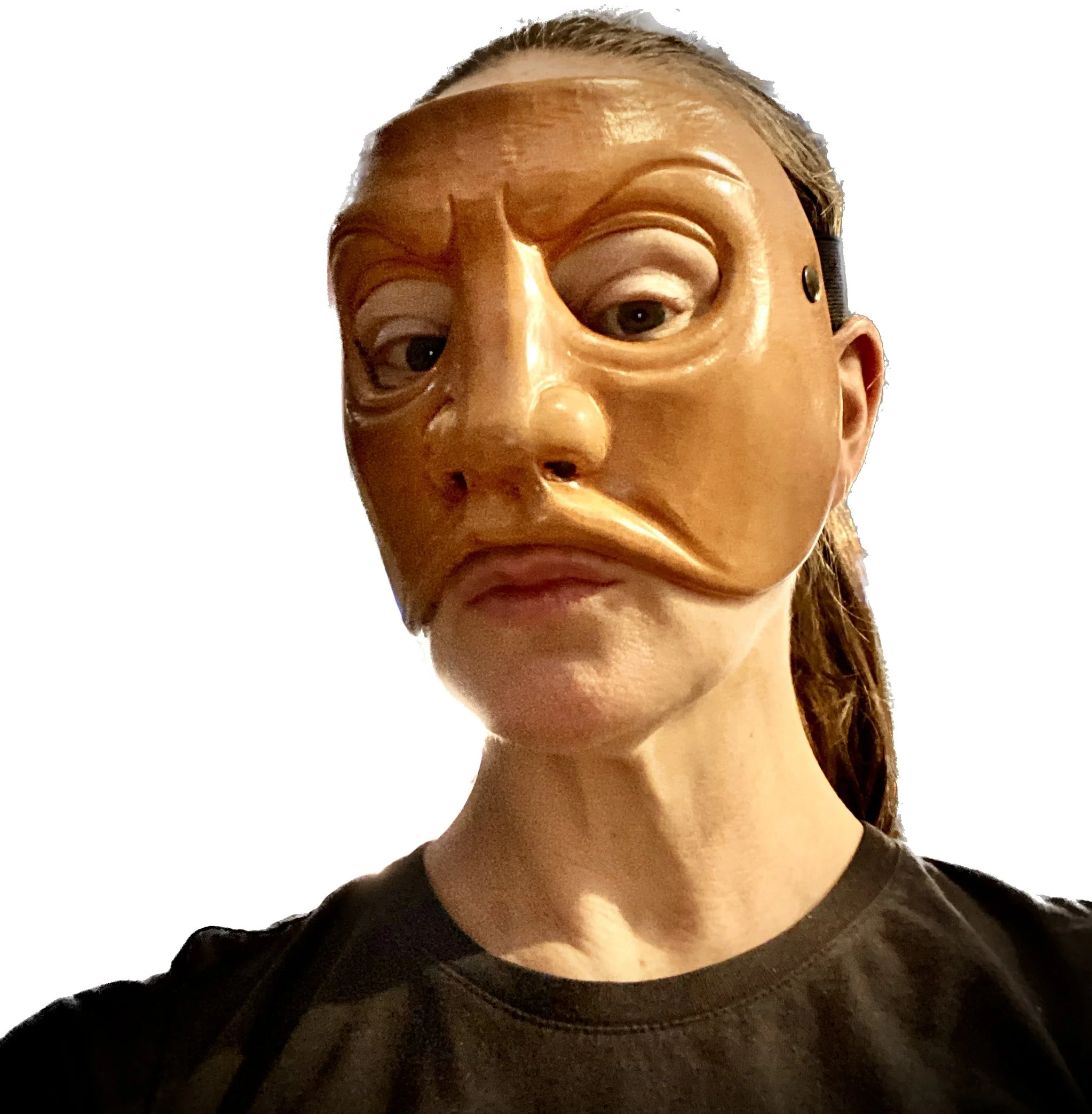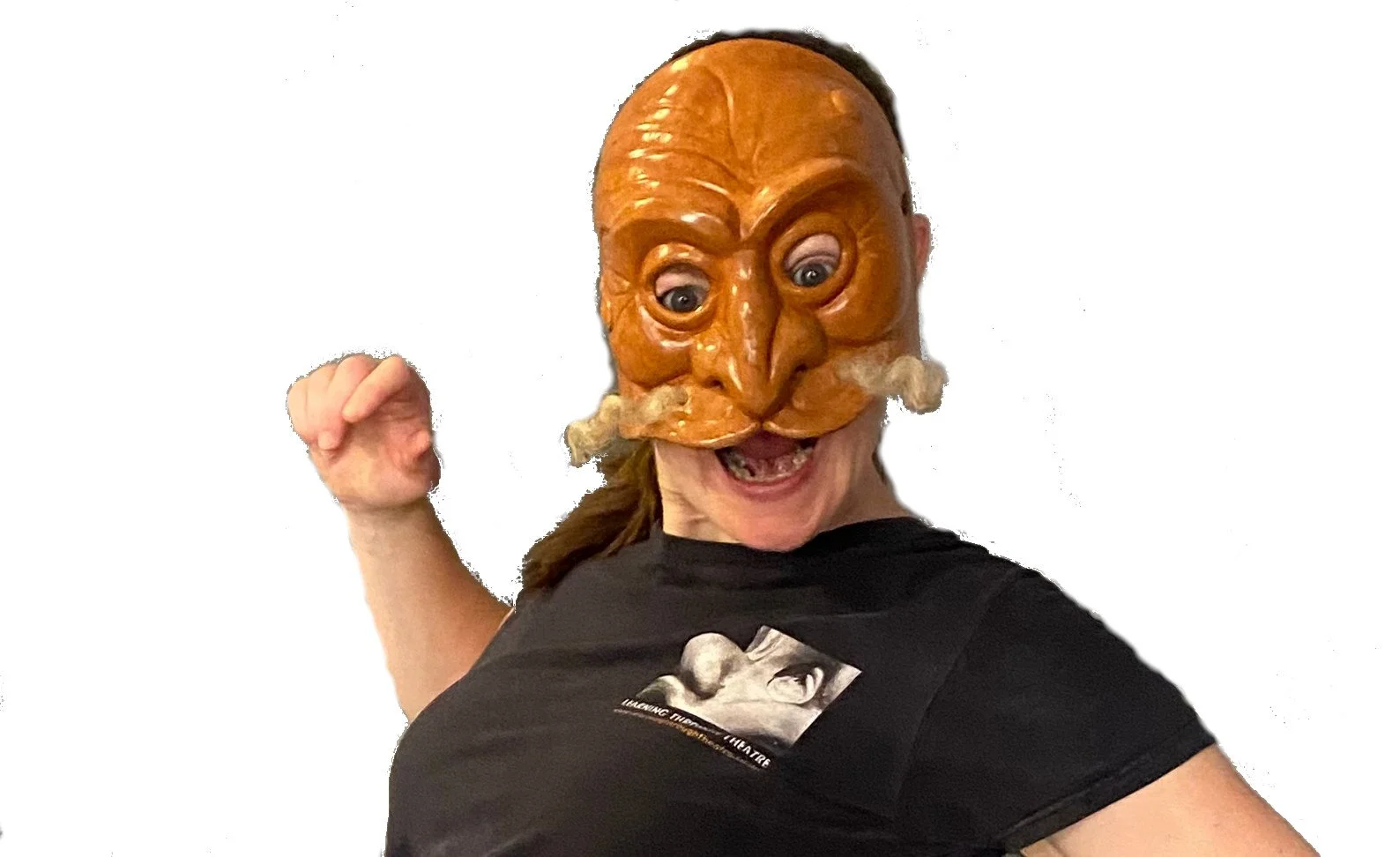Why Do Masks Scare People?
Masks have an extraordinary ability to evoke both fascination and fear. While their concealment and mystery can be unsettling, in the world of theatre, masks are powerful tools for transformation, storytelling, and connection. But what if we could harness that power not just for performance, but for learning and even for healing?
For drama teachers, masks offer unique opportunities to engage students, spark creativity, and explore deep themes in ways that few other tools can achieve. For drama therapists, masks offer a lens through which a client can view themselves, both inwardly and externally, and also enables them to explore new ways of being as part of a transformative journey.
Fear of the Unknown
Masks conceal. They hide the face, which is the primary way humans interpret emotions and intentions. Without access to the subtle cues of a person's expression, our brain struggles to assess whether the masked figure is friendly or threatening. This ambiguity triggers our survival instincts, leaving us feeling uneasy or even frightened.
The Uncanny Valley Effect
A mask that resembles a human face but lacks life-like qualities can provoke discomfort. This phenomenon, known as 'The Uncanny Valley', arises because the mask exists in a strange middle ground—it's almost human, but not quite. This eeriness can make people instinctively distrust or fear the person behind it.
The Mask as An Enabler
Concealing the face removes our instinctual ability to "read" emotions and intentions, forcing us to look elsewhere for cues. Placing this in the controlled and safe environment of a workshop, this ambiguity becomes an exciting creative challenge. Participants are invited to let go of their usual inhibitions and step into roles they may never have imagined.
This can mean breaking free of self-consciousness and experimenting with bold new ways of moving, speaking, and connecting. For teachers or therapists, it provides a fresh lens to view the dynamics in the space and the potential of the individuals within it.
Unlocking Confidence Through Play
Masks allow us to shed personal identity and inhibitions. Hidden behind a mask, even the shyest individual can feel free to experiment with new characters, voices, and emotions. This encourages self-expression, builds confidence, and nurtures creativity.
Exploring New Perspectives
When we wear a mask, we’re not just acting—we’re embodying entirely new perspectives. Masks offer a playful way to explore complex themes like identity, empathy, and transformation.
Physical Expression Over Words
Masks encourage a focus on physicality. Because facial expressions are hidden, the mask user must communicate through their body, learning the fundamentals of movement, gesture, and posture, discovering blocks as well, as expressive potential. This has a physically liberating effect empowering the mask user to ‘talk and listen’ nonverbally.
Building Ensemble Work
Mask work emphasises collaboration. In mask theatre, every movement is amplified and your vision is restricted altering your spatial awareness. Mask users must work together with precision, being very consciously in the moment, with heightened observation and listening. Mask workshops can help a group bond, cooperate and learn more about each other, in a short space of time, than any other type of performance.
A Transformational Journey
Our mask workshops are not just for performers. No matter what background you come from, mask theatre workshops are more than just a drama activity—it’s an experience that transforms the way participants think about performance, audience, storytelling, and themselves.
So, why not step into the unknown and explore the magic of masks? It's not just a workshop—it’s an invitation to discover the power of theatre in its most primal, captivating form. Get in touch to discuss how a workshop could help your students, clients, or team shed their fear and embrace their creativity and collaboration.




